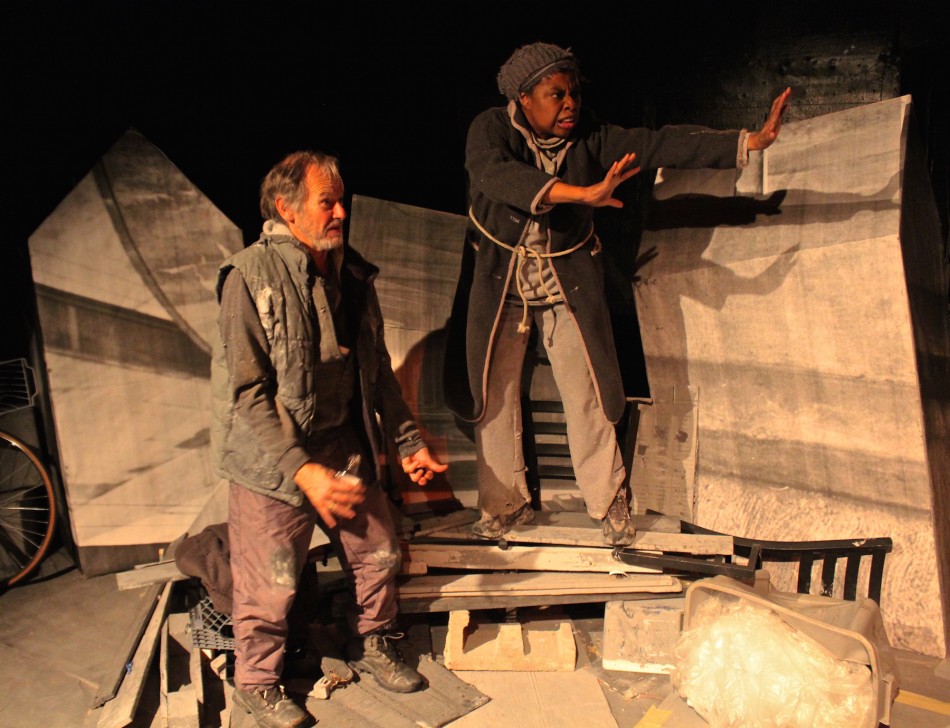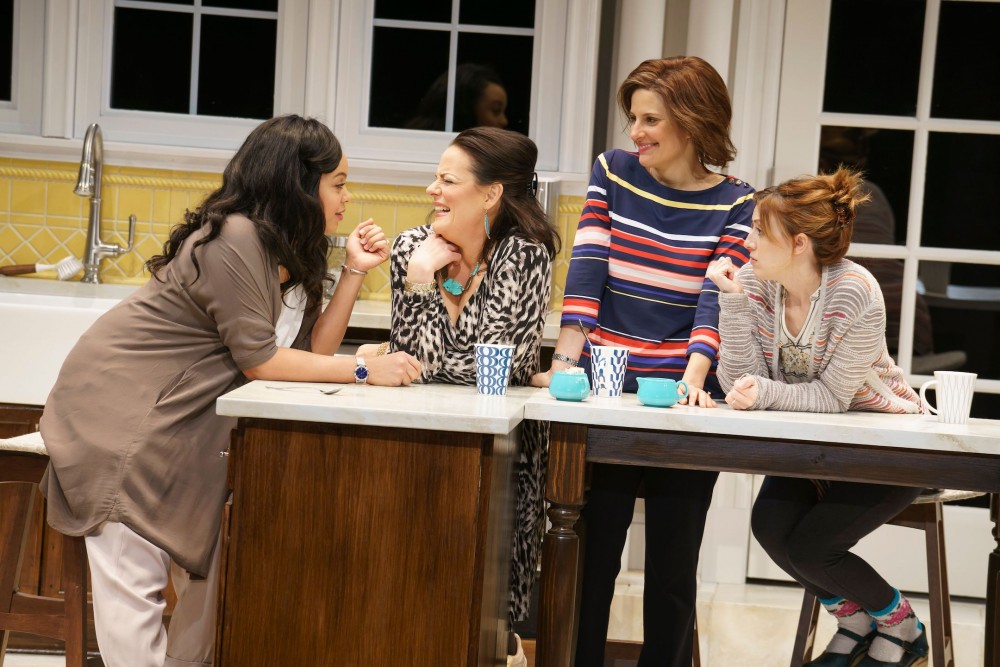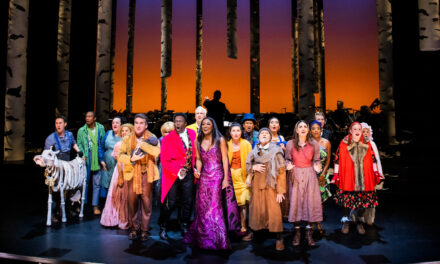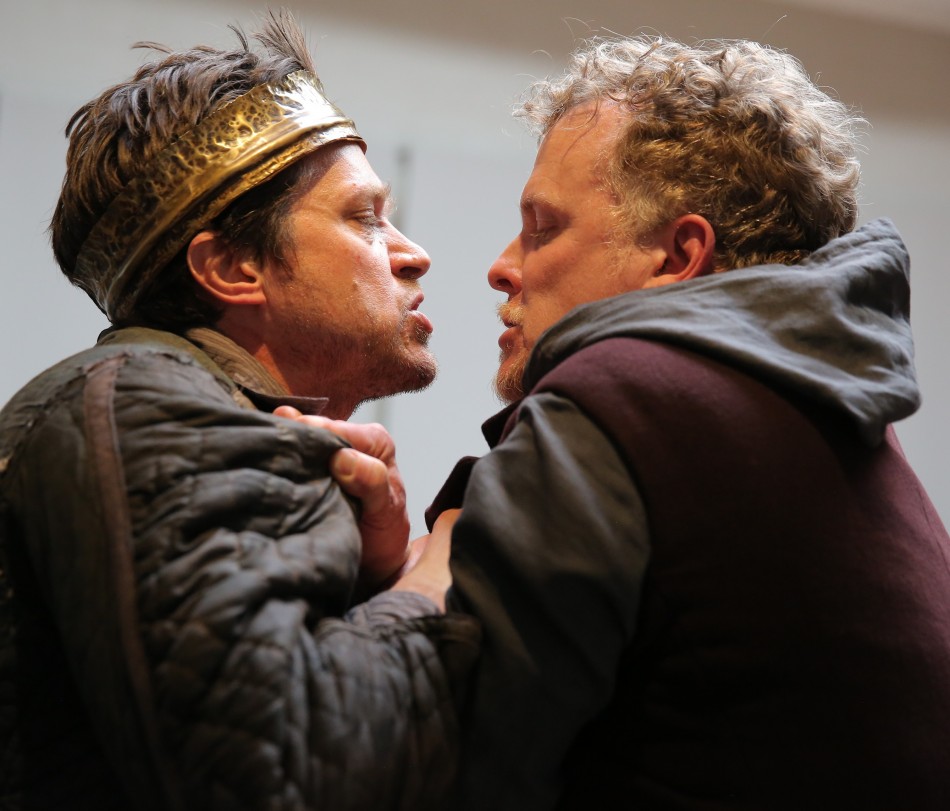by: Sophia Romma
As the curtain rises on a sleepy bleak New York City, amid a frigid backdrop of weepy brownstones; the obnoxious sirens awaken the homeless, in Dan McCormick’s new play, “Homeless and How We Got That Way,” which premiered at the Roust Theatre Company on October 25th.
As the lights harshly fall on Eloise, a thirty-three year old African American and her nightly hobo companion, Sidney, an aging vagrant, the audience is lured into the complex world of two drunkards who once had a flaming passion for life, an ardent manner of living which had degenerated due to a series of malignant circumstances, gnawing away at the very bone marrow of two individual spirits who have been cut down to size by the fatal consequences of a burgeoning addiction. While seemingly from entirely different social backgrounds, Eloise from the South, a flash in the pan novelist, haunted by the ghosts and demons of her youth, and Sidney, an outstanding neurosurgeon, at the top of his game, constantly reminiscing about his botched up operation on his own wife who had died under his knife due to his alcoholic negligence, they are both disturbed by their conscience, permanently shackled by the beasts of liquor. Eloise, drawing her knees to her stomach and clenching her teeth, chants: “All pain passes but it’s hard to remember when you’re in the midst of that pain.” Sidney circles about Eloise in a drunken stupor, yet ready to recite the basic composition of the human brain, a monologue which meticulously unveils his compact professional memory as he recalls challenging medical terms like “Medulla Oblongata, Cerebellum, and the Fornix”, murmured in one breath. However, he can’t recall the day before, nor what he’s eaten, nor his engaging emphatic conversations with Eloise. As the play progresses, Eloise and Sidney shift about, resembling holograms of human existence, vacant corpses dancing to a desperate boozing tune; in despair, anxious to recall their past lives before homelessness set in like fine rain and trapped against the tapestry of their lives .
Much to my chagrin this play, which built a fortress around two strong-willed characters coming apart at the seams, is a mere exercise on exposition, verses of tepid tonality, simulating the raw-chested pain evoked by Tennessee Williams and Edward Albee, alas never reaching the apogee of introspective post-mortem for two lost souls, but rather emotively harnessing their fragmented pasts which are neither revelatory nor shocking but, on the contrary, rather banal and predictable, if not altogether fabricated and far-fetched.
Although the Roust Theatre’s Press Release states that “the Company’s dedicated to gripping and imaginative theatre,” this particularly dry stage-play, blighted by unruly and unconvincing flashbacks of incest, plantation phantoms and the deplorable duplicity of the bible belt worshipers as experienced by Eloise, and Sidney’s lamentable, though on occasion, laughable hallucinations of his children, his wife’s debilitating aneurism, his shaky intrusive hands leading to his eventual moral and physical paralysis as a doctor, and his unearthly visions of “the horses…the horses” (which he intermittingly blurts out in an incredulous frenzy throughout the play), ineffectually accomplishes pseudo-tenderness, drawing us out of the viable dilemma hounding these down on their luck – drunken homeless antiheroes. Albeit, there is an obvious spiritual conflict between Eloise and Sidney, as they are entangled in each other’s pasts, struggling to maintain their respective humanity; the characters simply keep running straight back to the bottle with a pale fire of redemption in sight.
The director, James Phillip Gates, fails to propel the stale repetitive discourse into action, as the characters primitively adjust their positions, basically headed nowhere. It must be noted that Richarda Abrams (Eloise) is intense, spot-on and righteous to the core. She plays her role with the utmost ease until her ludicrous flashbacks deter her impeccable method acting. Bryan Hickey (Sidney) tends to overact, overreact and becomes a rather neurotic caricature of a fallen saint. Kevin Kedroe’s set design is evocative of the essence of a heartless homeless life, as is Raven Roberts’ opaque vagabond costumes. The lighting design by Travis Sawyer is mystifying and captures the perilous nights of Gotham.
In the final scene, Eloise remarks, taking a swig of whiskey: “I don’t remember…finally I don’t remember anything at all and that’s a very good thing.” As the lights of the Big Apple die out, so does the resonance of this play.
Access Theatre, 380 Broadway, 4th floor, New York, NY 10013 (Tribeca)
Photo: Jay Rivera/BeezEye Photography
http://www.brownpapertickets.com/event2332719






















